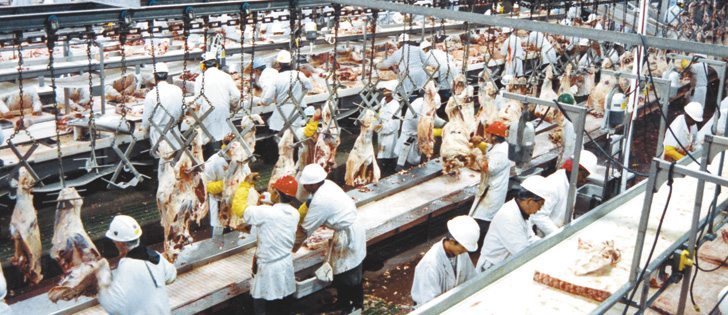Hunger aid needed
MILAN, Italy (Reuters) – Major companies in agriculture and food sectors have tripled their investments in boosting global food security but need to spend more to help eradicate hunger, participants at an international forum said
Nov. 12.
With the number of hungry people rising to a record 1.02 billion this year, up 100 million from 2008, the United Nations’ Food and Agriculture Organization urged private and public investors to pour more funds in developing countries’ farming.
Major food and agribusiness companies, including Nestle, Unilever and Cargill, gathered in Milan for a two-day meeting on food security, said they can add value to the global cause with their funds and expertise.
Read Also

Selenium not deal breaker in coal mining: expert
Environmental scientist weighs in on coal mining debates in Western Canada, explaining selenium and the technologies and practices to lower its concentrations in nearby waterways to coal mining operations
But their investments in poor countries’ agriculture also follow a pure business rationale because they help companies reduce costs, ensure the long-term viability of their own supplies and build markets for their products, they said.
Black Sea crops buggy
GENEVA, Switzerland (Reuters) – This year’s wheat crop in Black Sea producing nations is showing a higher amount of bug damage, making it harder for exports from the region to meet the requirements of major buyers like Egypt, inspection group SGS said.
With European and North American wheat comfortably meeting bug damage stipulations, the issue could curb Russian and Ukrainian shipments as leading importers apply stricter limits, said an SGS executive.
Bug damage is one of the key quality criteria used by wheat buyers to ensure grain meets local milling standards.
India markets pondered
NEW DELHI, India (Reuters) – Cargill, the U.S. based agri-business and trading company, plans to expand its operations in India, a
top company official said.
But senior vice-president Paul D. Conway said he saw fragmented local markets and policy uncertainty as risks.
“The biggest challenge that we face in India has been the difficulty of doing trade between the states,” he said in an interview.
In India, Cargill’s main business interest lies in cooking oils and sugar – net imports for India.














